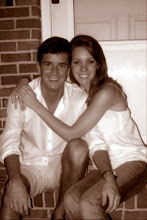Thomas Hardy was an individual who bridged the gap from the Victorian era to the modern era. He started his career as a Victorian novelist and later abandoned it to become a modern poet. A lot of his works discussed issues like class tensions, industrialization, and questioning religious faith. Some of his most well-known works include "Far From the Madding Crowd", "The Return of the Native", "Tess of the d'Ubervilles", and "Jude the Obscure". Some of these books were very controversial, and most readers were astounded that someone would even write it.
Soon after the backlash from his novels, Hardy decided to express himself through poetry. With the Victorian age fading away, Hardy took on the writing style of the modernists. His style was very similar to religious hymns and writings. Hardy was saddened by all of the death that came with World War I, yet he remained somewhat of a nationalist. This can be observed when he says the following:
"All nations striving to make
Red war yet redder. Mad as hatters
They do no more for Christes sake
Than you who are helpless in such matters.
That this is not the judgement-hour
For some of them's a blessed thing,
For if it where they'd have to scour
Hell's floor for so much threatening." (p. 1077)
I like how Hardy takes both sides of the war. He is quick to point out war and all of its madness, but he's quick to jump to the other side and show you why it's necessary. It doesn't feel like you're being fed a load of propaganda when you read his works.
I'm glad to see that Thomas Hardy lived a long life (88 years). It seems like most people we've covered have either had their life cut short or not pushed past 70. Hardy was a pleasure to read because he made you actually think about what he was writing, as opposed to being spoon-fed.
Monday, June 23, 2008
Subscribe to:
Post Comments (Atom)

1 comment:
Daniel,
OK comments on Hardy. It would be helpful to provide the title of the poem you are discussing, though. Also, that poem--"Channel Firing"--was not a reaction to WWI. He wrote it in April 1914, and the was did not begin until August of that year. I would have liked to see more analysis of the great lines you quoted, too.
Post a Comment